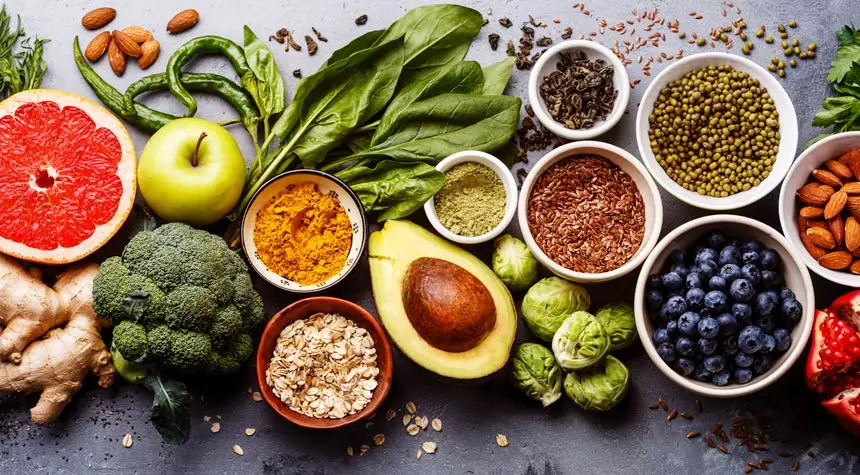If you want to improve your cardiovascular health, choose a low-fat diet and limit salty foods. Try to eat leafy green vegetables, beans and whole grains (reduced salt) and add nuts, seeds and oily fish.
Remember that many risk factors for heart disease are within your control, including being physically active, avoiding smoking and managing your weight.
1. Eat a Healthy Diet
Your diet is the foundation for your health and is in your direct control. Studies show that people with good lifestyle habits like not smoking, maintaining a healthy weight, eating plenty of vegetables and fruits, whole grains and low-fat dairy have lower rates of high blood pressure and heart disease.
Choose a nutritious diet that includes lots of fresh and seasonal vegetables (5 portions a day), whole fruit, low-fat milk, lean meats and fish, and limit salt (no more than 6g a day). A diet rich in antioxidants from foods like berries, green vegetables, nuts, seeds and legumes may reduce your risk for some cancers as well.
If changing your diet seems overwhelming, break down your goals into manageable milestones and start small. Remember, changes take time to turn into habits. Getting a good night’s rest (7-8 hours external link) helps keep your body, including your heart, in balance.
2. Exercise Regularly
Everyone knows that exercise is essential for heart health. But getting in the habit of regularly exercising isn’t always easy, especially for those who have a difficult time changing their lifestyle habits. The AHA recommends at least 150 minutes of moderate intensity aerobic activity or 75 minutes of vigorous exercise each week. Activities such as walking, swimming and biking are great options. Even regular household chores like gardening, stair climbing or playing with your kids can help you get more physical activity each day.
Another important factor for a healthy heart is to maintain good blood pressure and cholesterol levels. To do this, you should make sure to have your blood pressure checked regularly and control any factors that can contribute to high blood pressure and high cholesterol. A good way to do this is to follow a balanced diet, exercise regularly and reduce stress by practicing relaxation techniques such as yoga, tai chi or meditation.
3. Avoid Smoking
Most people know that smoking increases the risk of lung cancer and breathing problems. Less known is that cigarette smoke also significantly increases the risk of heart disease, peripheral vascular disease (disease in the vessels that supply blood to the arms and legs) and abdominal aortic aneurysm. The nicotine and other chemicals in cigarette smoke narrow the blood vessels, increase the heart rate and raise the blood pressure. This increases the amount of work the heart has to do, and makes it more likely that blood clots will form in the arteries leading to a stroke or heart attack.
Quitting smoking greatly reduces the risk of heart disease. It also helps stop the effects of tobacco on how you look, such as premature wrinkling of the skin and gum disease. You can quit smoking by talking to your doctor, using smoking cessation medicines or visiting NHS Smokefree. Also, make sure your home and workplace are smoke-free to protect those around you.
4. Avoid Alcohol
Although it’s true that certain factors such as family history, sex and age can increase your risk of heart disease or stroke, there is plenty you can do to reduce these risks. The key is to make healthy choices.
Abstaining from alcohol, eating a balanced diet and exercising regularly are all important for good heart health. But avoiding alcohol is also crucial for those who already have heart conditions or are at risk of developing them.
Excessive drinking increases your blood pressure and can increase the risk of stroke and other heart problems. Generally, no more than two drinks a day for men and one drink a day for women is recommended.
Creating a heart-healthy lifestyle may seem daunting, but it’s important to start with small changes. Then, once these become habits, you can add more changes. You can even ask for help from a trusted friend or support group to help you stick to these new habits.



